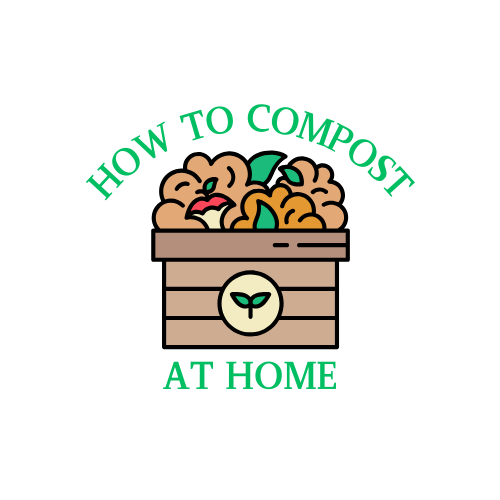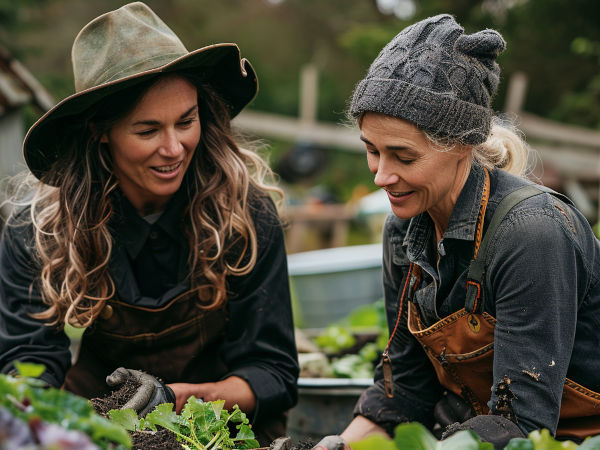Welcome to How to Compost at Home and our Composting 101 guide, your ultimate guide to understanding the basics of composting and its benefits. Whether you’re a beginner or looking to enhance your composting knowledge, this page will provide you with everything you need to know to get started on your composting journey.
Introduction to Composting
Composting is a natural process that transforms organic waste into nutrient-rich soil amendment. It’s a sustainable practice that not only reduces waste but also benefits the environment and enhances soil health.
Organic Waste Recycling: Composting serves as a method of organic waste recycling, diverting materials that would otherwise end up in landfills.
Environmental Sustainability: Composting plays a vital role in environmental sustainability by minimizing greenhouse gas emissions and conserving landfill space.
Eco-Friendly Practices: Engaging in composting is a proactive step towards adopting eco-friendly practices in everyday life.
Soil Enrichment: One of the key benefits of composting is soil enrichment, enhancing soil structure, fertility, and microbial activity.
Basics of Composting
Understanding the basics of composting is essential for successful composting practices. Let’s explore the fundamental principles behind composting and how it works.
Decomposition Process: Composting relies on the natural decomposition process, where microorganisms break down organic materials into humus.
Microbial Activity: Microorganisms such as bacteria, fungi, and actinomycetes play a crucial role in the composting process, breaking down organic matter into nutrient-rich compost.
Nutrient Cycling: Composting facilitates the recycling of nutrients from organic waste back into the soil, creating a closed-loop system of nutrient cycling.
Carbon-to-Nitrogen Ratio: Achieving the right balance of carbon-rich (browns) and nitrogen-rich (greens) materials is essential for efficient composting. The ideal carbon-to-nitrogen ratio promotes microbial activity and accelerates decomposition.
What is Composting?
Composting is the biological decomposition of organic materials under controlled conditions. It’s a natural process that occurs in nature and can be replicated in home composting systems.
Biodegradation: Composting involves the biodegradation of organic materials by microorganisms, resulting in the formation of compost.
Microbial Diversity: A diverse community of microorganisms, including bacteria, fungi, and protozoa, contribute to the composting process.
Aerobic Respiration: Composting typically occurs under aerobic conditions, where oxygen is present, promoting aerobic respiration and efficient decomposition.
Organic Matter Breakdown: Through the composting process, organic matter is broken down into simpler compounds, releasing nutrients that enrich the soil.
Why Compost?
Composting offers a multitude of benefits, ranging from waste reduction to soil improvement. Let’s explore why composting is a valuable practice for individuals and the environment.
Reduce Landfill Waste: Composting diverts organic waste from landfills, reducing the burden on waste management systems and extending landfill lifespans.
Minimize Greenhouse Gas Emissions: By composting organic materials aerobically, methane emissions from anaerobic decomposition in landfills are minimized, contributing to climate change mitigation efforts.
Soil Health Improvement: Adding compost to soil improves its structure, water retention capacity, and nutrient content, leading to healthier plants and increased crop yields.
Waste Management Solutions: Composting offers a decentralized approach to waste management, empowering individuals to take responsibility for their organic waste and transform it into a valuable resource.
Getting Started with Composting
Ready to start composting? Let’s explore the essential steps and considerations for getting started with your composting journey.
Starter Kits: Consider investing in a composting starter kit or bin to kickstart your composting efforts. Starter kits often include everything you need to begin composting, from bins to instructional materials.
Composting Setup: Choose a suitable location for your compost pile or bin, ensuring adequate drainage, sunlight, and airflow. Your composting setup should be easily accessible and convenient for regular maintenance.
Composting Bins: Selecting the right composting bin is crucial for successful composting. Options range from traditional pile composting to specialized bins such as tumblers and worm bins.
Composting for Beginners: If you’re new to composting, don’t worry! Composting for beginners is straightforward and rewarding. Start with simple techniques and gradually expand your composting knowledge as you gain experience.
Composting Benefits
The benefits of composting extend beyond waste reduction, offering numerous advantages for both the environment and gardeners. Let’s explore the many ways composting can enrich our lives.
Soil Fertility: Compost improves soil fertility by supplying essential nutrients, enhancing soil structure, and promoting beneficial microbial activity.
Water Retention: Adding compost to soil improves its water retention capacity, reducing water runoff and enhancing drought resistance.
Plant Growth: Healthy soil leads to healthy plants. Compost provides plants with the nutrients they need for robust growth, vibrant blooms, and abundant harvests.
Organic Gardening Benefits: Composting aligns with organic gardening principles, allowing gardeners to nourish their plants naturally without relying on synthetic fertilizers or harmful chemicals.
Composting Methods
Various composting methods cater to different preferences, space limitations, and composting goals. Let’s explore the most common composting methods and how they work.
Aerobic Composting: Aerobic composting relies on oxygen-loving microorganisms to break down organic matter efficiently. This method produces high-quality compost quickly under aerobic conditions.
Anaerobic Composting: Anaerobic composting occurs in the absence of oxygen and typically leads to slower decomposition and the production of odorous byproducts such as methane and hydrogen sulfide.
Vermicomposting: Vermicomposting utilizes composting worms, such as red wigglers, to accelerate the decomposition process and produce nutrient-rich vermicompost.
Hot Composting: Hot composting involves maintaining high temperatures within the compost pile to speed up decomposition and kill weed seeds and pathogens.
Compost Bin Types
Choosing the right compost bin is essential for optimizing your composting experience. Let’s explore the various types of compost bins available and their features.
Tumbler Bins: Tumbler bins are rotating composters that facilitate aeration and mixing of compost materials, speeding up the composting process.
Worm Bins: Worm bins, also known as vermicomposters, house composting worms that process organic waste into nutrient-rich vermicompost.
Pile Composting: Traditional pile composting involves creating a heap or mound of organic materials directly on the ground, allowing for natural decomposition.
Indoor Composting: Indoor composting systems, such as bokashi bins or electric composters, enable composting in limited spaces and year-round composting.
Composting Ingredients
Successful composting relies on a balanced mix of organic materials known as compost ingredients. Let’s explore the key components of a healthy compost pile and how to achieve the right balance.
Green Materials: Green materials, also known as nitrogen-rich materials, include kitchen scraps, grass clippings, and fresh plant trimmings.
Brown Materials: Brown materials, also known as carbon-rich materials, include dry leaves, straw, wood chips, and cardboard.
Kitchen Scraps: Common kitchen scraps suitable for composting include fruit and vegetable peels, coffee grounds, eggshells, and tea bags.
Yard Waste: Yard waste such as grass clippings, leaves, and pruned branches are valuable additions to the compost pile, providing essential nutrients and organic matter.
Tips for Successful Composting
Achieving successful composting requires proper care and maintenance of your compost pile. Let’s explore some valuable tips for maximizing composting efficiency and productivity.
Turning the Compost: Regularly turning the compost pile promotes aeration, mixes compost materials, and accelerates decomposition.
Moisture Levels: Maintain optimal moisture levels in the compost pile, similar to a wrung-out sponge, to support microbial activity and decomposition.
Aeration: Ensure adequate airflow within the compost pile by layering materials loosely and turning the pile regularly to prevent compaction.
Proper Layering: Alternate layers of green and brown materials in the compost pile to achieve the right balance of carbon and nitrogen.
Troubleshooting Compost Issues
Encountering challenges while composting is common, but knowing how to troubleshoot and address them can help you maintain a healthy compost pile. Let’s explore some common composting problems and solutions.
Foul Odor: A foul odor emanating from the compost pile indicates anaerobic conditions. Increase aeration by turning the pile and adding dry brown materials to absorb excess moisture.
Pest Control: Keep pests such as rodents and insects away from the compost pile by avoiding meat, dairy, and oily foods and covering exposed compost with a secure lid or wire mesh.
Slow Decomposition: If composting progress is slow, check the carbon-to-nitrogen ratio and moisture levels, and consider adding activators such as finished compost or composting accelerators.
Compost Overheating: Excessive heat in the compost pile can kill beneficial microorganisms. Turn the pile to dissipate heat and introduce more bulky materials to increase airflow.
Composting FAQs
Got questions about composting? You’re not alone! Let’s address some frequently asked questions to help you troubleshoot common issues and deepen your understanding of composting.
How long does composting take? The composting process typically takes between two to six months, depending on factors such as temperature, moisture, and composting method.
Can I compost meat and dairy? While meat, dairy, and oily foods can compost, they may attract pests and produce odors. It’s best to avoid them in home composting systems.
What can I do with finished compost? Finished compost can be used as a soil amendment, mulch, or potting mix ingredient to nourish plants and improve soil health.
Resources for Further Learning
Ready to dive deeper into the world of composting? Explore these resources for valuable information, tips, and inspiration on composting practices and techniques.
Composting Guides: Comprehensive guides and manuals provide step-by-step instructions and expert advice on various aspects of composting.
Online Composting Communities: Join online forums and communities to connect with fellow composting enthusiasts, share experiences, and seek advice.
Composting Workshops: Attend composting workshops and seminars hosted by local organizations, universities, or gardening clubs to learn from experts and hands-on demonstrations.
Composting Books: Explore a wide selection of books on composting, soil science, and sustainable gardening practices for in-depth knowledge and practical tips.
Composting for Beginners
New to composting? Don’t worry! Composting for beginners is easy and rewarding with the right knowledge and resources. Start your composting journey today and join the movement towards sustainable living.
Composting Basics: Learn the basics of composting, including selecting materials, building a compost pile, and maintaining composting systems.
Composting Essentials: Familiarize yourself with essential composting concepts such as carbon-to-nitrogen ratios, temperature management, and moisture levels.
Beginner Composting Tips: Discover valuable tips and tricks for beginner composters, from troubleshooting common issues to maximizing composting efficiency.
Easy Composting Methods: Explore simple and beginner-friendly composting methods that require minimal equipment and effort, perfect for newcomers to composting.
Composting Guide
Congratulations! You’ve completed Composting 101, your comprehensive guide to understanding the basics of composting and getting started on your composting journey. Remember, composting is a rewarding practice that benefits the environment, enriches soil health, and empowers individuals to make a positive impact through sustainable living.

